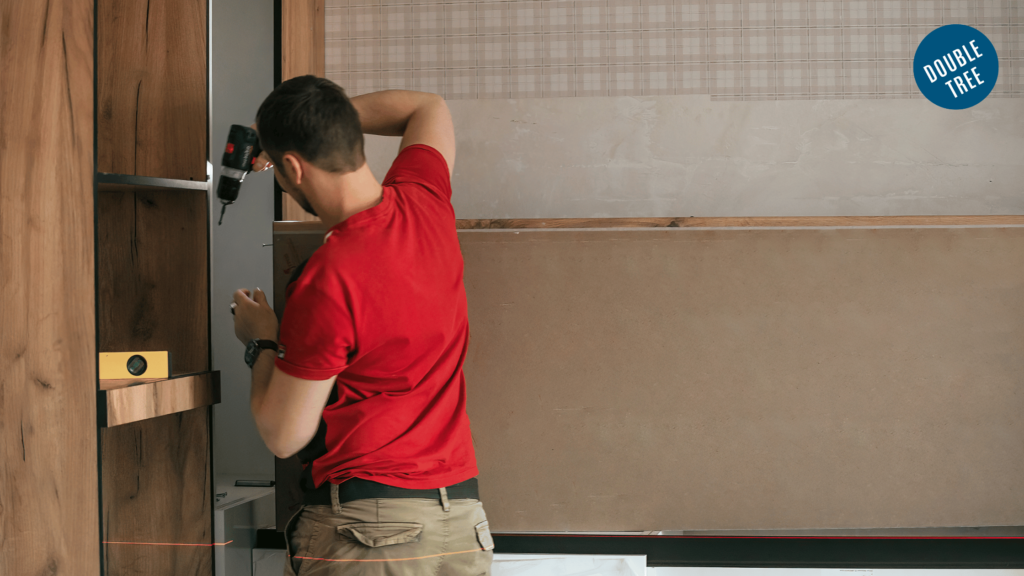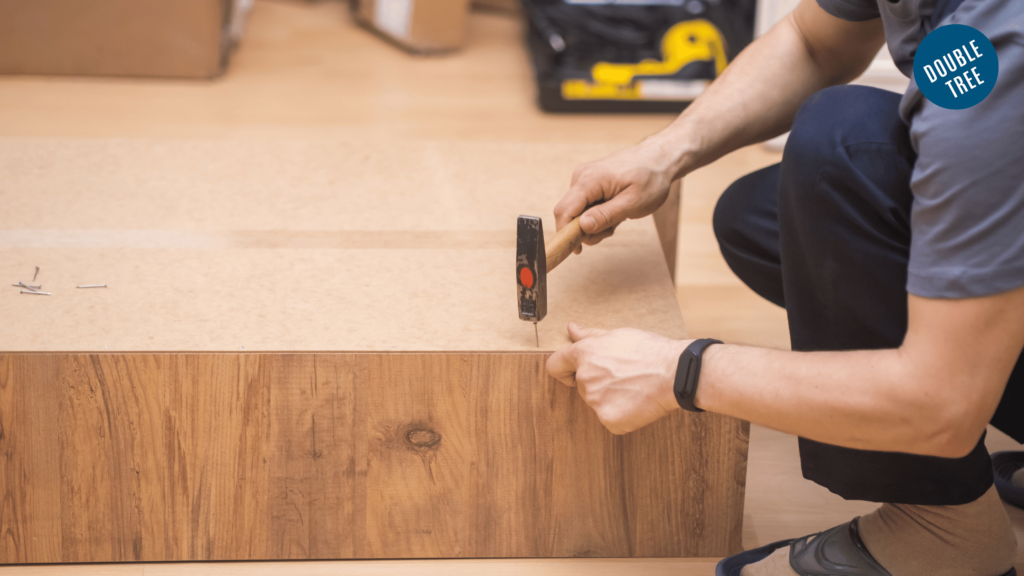In today’s dynamic world, our living spaces must adapt as quickly as our lifestyles change. Modular furniture has emerged as an innovative solution, reshaping how we approach home decor and functionality.
But what exactly is modular furniture, and why is it gaining such traction? Let’s explore the world of modular design and uncover the seven key advantages it brings to modern living.
What is Modular Furniture?
Modular furniture consists of pieces designed with interchangeable parts arranged in various configurations.
This creative approach to furniture design originated in the mid-20th century and has since evolved to meet the ever-changing needs of contemporary homes and offices.
1. Versatility and Flexibility: Adapting Your Space with Ease
One of the most significant benefits of modular furniture is its unparalleled versatility. Unlike traditional furniture, modular pieces can be easily reconfigured to suit changing needs and spaces. This adaptability is particularly valuable in today’s world, where our living and work environments constantly evolve.
Consider a modular shelving system. AA studio apartments can serve as a room divider, creating distinct living and sleeping areas. When you move to a larger space, the same system can be easily transformed into a wall-mounted bookcase or a freestanding display unit.
This flexibility ensures that your furniture investment remains relevant and useful for years, adapting to your lifestyle changes without needing replacement.

2. Space Optimization: Making the Most of Every Square Inch
Modular furniture is a space-saving solution in an era where urban living often means dealing with limited space. Its ability to serve multiple purposes and adapt to different configurations makes it ideal for small apartments, tiny homes, or any space where maximizing every square foot is crucial.
Here are some ways modular furniture helps optimize space:
- Multifunctional pieces (e.g., ottoman storage units, fold-down desks)
- Stackable and nestable designs
- Custom configurations that eliminate wasted areas
A modular wall unit can incorporate a fold-out bed, desk, and storage cabinets for those living in compact spaces, turning a single room into a multifunctional living area.
This approach to furniture design allows you to make the most of your available space without sacrificing functionality or style.
3. Cost-Effectiveness: A Smart Investment for Long-Term Savings
While the initial cost of high-quality modular furniture might be comparable to traditional pieces, the long-term financial benefits are significant. The ability to reconfigure and adapt your furniture as your needs change means you’re less likely to replace entire pieces when your living situation evolves.
For example, consider a modular sofa system. Instead of buying a new sofa every few years as your family grows or your design preferences change, you can add or remove sections, change covers, or reconfigure the layout.
This adaptability extends the life of your furniture investment, potentially saving substantial amounts over time.

4. Customization and Personalization: Tailoring Your Furniture to Your Needs
Modular furniture offers unprecedented levels of customization, allowing you to become the designer of your living space. This personalization extends beyond mere aesthetics; it enables you to create furniture arrangements that perfectly suit your functional needs and personal style.
Key aspects of modular furniture customization include:
- Mix-and-match components
- Variety of colours, fabrics, and finishes
- Adjustable features (e.g., height-adjustable desks, movable armrests)
A modular bookshelf, for instance, can be a canvas for self-expression. You can arrange colourful cubes to create a playful pattern or opt for a sleek, monochromatic look for a more minimalist aesthetic.
The ability to easily change and rearrange allows your furniture to evolve with your style preferences, ensuring your space feels fresh and personalized.
5. Easy Assembly and Disassembly: Convenience at Your Fingertips
The user-friendly design of most modular furniture makes it a perfect fit for our DIY-loving, fast-paced world. Many modular pieces are designed for quick and intuitive assembly, often without specialized tools. This ease of assembly and disassembly offers several advantages:
- Time-saving installation process
- Simplified moves and relocations
- Easy maintenance and component replacement
Consider a modular wardrobe system. Unlike a traditional built-in closet, a modular wardrobe can be assembled, reconfigured, and moved relatively easily.
This flexibility is particularly valuable for renters or those who relocate frequently for work, allowing them to take their custom storage solutions wherever they go.

6. Sustainability and Environmental Impact: A Greener Approach to Furniture
In an age of increasing environmental awareness, modular furniture stands out as a sustainable choice. Its adaptable nature contributes to reduced waste and aligns with the circular economy principles.
Many modular furniture manufacturers also prioritize eco-friendly materials and production methods, reducing environmental impact.
A prime example of sustainability in action is modular office furniture. As businesses grow and change, modular desks and storage systems can be reconfigured to accommodate new layouts, avoiding the need to dispose of old furniture and purchase entirely new pieces.
This approach significantly reduces corporate waste and supports sustainable business practices.
7. Aesthetic Appeal and Modern Design: Where Style Meets Function
Modular furniture isn’t just practical; it’s also at the forefront of contemporary design trends. Known for clean lines and minimalist aesthetics, modular pieces often become statement elements in modern interiors. Creating cohesive looks through coordinated systems allows for a harmonious and intentional appearance in any space.
The design flexibility of modular furniture is particularly appealing in modern interior design. For example, a modular seating system can be arranged in countless configurations, from a traditional linear sofa to an avant-garde circular arrangement.
This versatility allows homeowners to reinvent their living spaces without purchasing new furniture.

Conclusion
Modular furniture represents a significant shift in how we approach interior design and functionality. Its versatility, space-saving features, cost-effectiveness, and sustainability make it an ideal choice for modern living.
As urban spaces evolve and our needs for flexible interiors grow, modular furniture is poised to become increasingly important in our homes and offices.
Whether you’re furnishing a compact apartment or a spacious family home, modular design offers solutions that adapt to your changing lifestyle. By investing in modular furniture, you’re not just buying pieces for today; you’re creating a flexible environment that can evolve with you over time.
As you consider your next furniture purchase, explore the world of modular design. It offers the perfect balance of style, function, and adaptability for your space. Embrace the modular approach and discover how it can transform your living and working environments.





